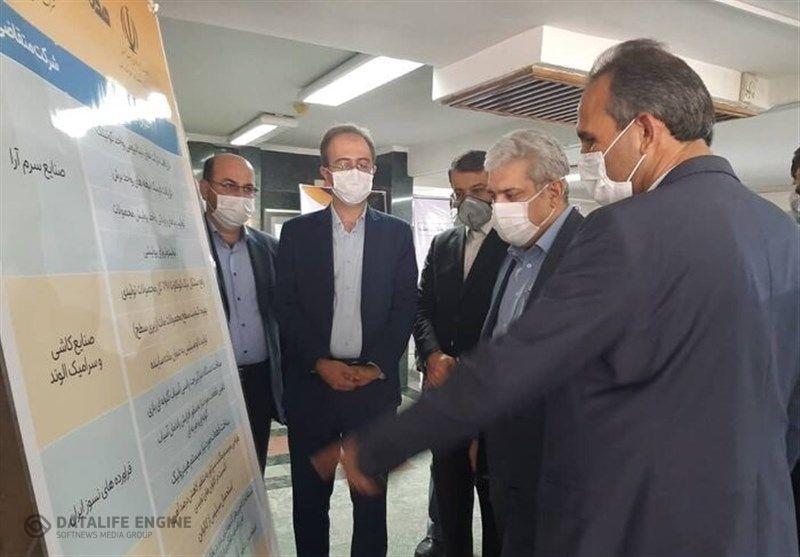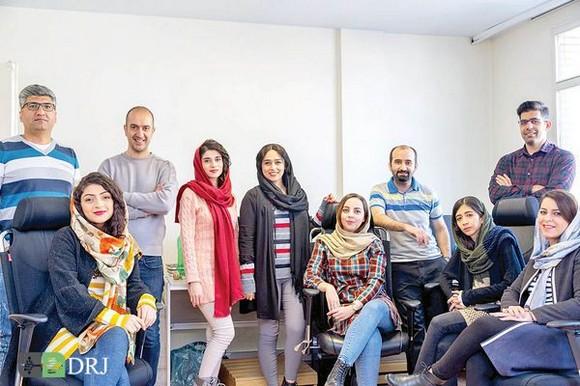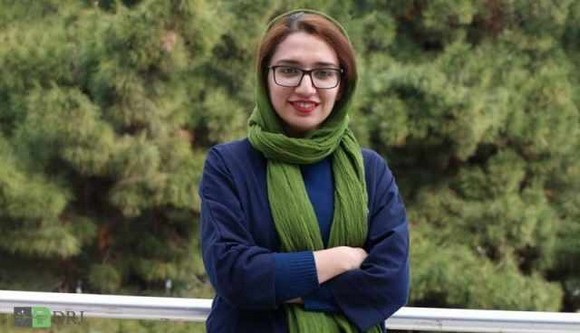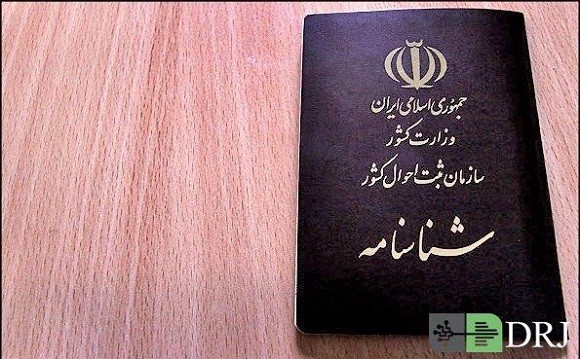Acikgenc Alparslan
Acikgenc , Alparslan ( b . 1952-- )
Born in Senkaya , Erzurum , Turkey on November 24th 1952 , Alparslan received his B . A . degree at Ankara University , School of Theology in 1974 . He was successful at a nationwide exam and then was awarded a scholarship abroad to do M . A . and Ph . D . in history of philosophy . He received his M . A . at the University of Wisconsin-Milwaukee ( 1977 ) and his Ph . D . at The University of Chicago in 1983 . After receiving his doctoral degree he began to teach at the Middle East Technical University , Department of Philosophy where he remained until 1994 . Between 1991-1993 Acikgenc was visiting professor at the International Institute of Islamic Thought and Civilization ( ISTAC ) , Kuala Lumpur , Malaysia . He joined and taught at ISTAC as Professor of Philosophy from 1995 until 1999 . In 1998 he was visiting professor at The University of Jordan , Department of Philosophy , Amman . Then he joined Fatih University as professor of philosophy , where presently he serves also as the Dean of the Faculty of Arts and Sciences .
Acikgenc wrote a number of books and articles some of which are directly related to Islam and science and religion and science perspectives . His first work on the subject appeared as “Ilmi Zihniyet ve Islam” ( Scientific Mentality and Islam ) published in Teknik ve Sosyal Y?nüyle Bilimsel Ara?t?rmalar ( Ankara: ODTU Kültür Ara?t?rmalar? ve Külliye Yapt?rma Derne?i , 1990 ) . This work was followed by a more comprehensive article entitled “?slamî Bilim ve Felsefe Anlay???” ( Islamic Understanding of Science and Philosophy ) , ?slamî Ara?t?rmalar ( Journal of Islamic Research ) , 4:3 ( 1990 ) .
Acikgenc describes his intellectual journey after this work as follows: “Ever since I started my scholarly career I have been interested in the general features of ‘Philosophical Systems’ and fascinated by their structural features . My research eventually led me to observe the similar epistemological aspects between systems and worldviews , if what I conceive as the ground for the possibility of our mind to operate is termed worldview . Conceived as such , a worldview is the framework within which our mind operates . Supposing that we name all the contents of our mind as ‘knowledge’ , worldview will be the scheme within which the mind operates and acquires such knowledge . Hence , there is a functional affinity in the epistemological sense between systems and worldviews . Yet both schemes differ from each other in the way they are formed in the mind; a system is scientifically constructed , whereas a worldview arises in the mind either naturally or scientifically . The former can be termed ‘natural worldview’ and the latter ‘transparent worldview’ . A transparent worldview arises in the minds of individuals in a society through a mechanism of knowledge that operates within the given society . This mechanism can be referred to as ‘dissemination of knowledge’ .
On the other hand , a natural worldview is formed in the minds of individuals haphazardly and not through a sound dissemination of knowledge that is primarily directed by scientific inquiries of all kinds . I am using the word ‘science’ as equivalent to the term ‘ilm in Arabic , or the German word ‘Wissenschaft’ . A sound mechanism works through stages; the first stage is an abstract level where the ‘Ulama’ is supposed to assume a duty to form a dynamic scientific tradition; the second stage is the concretized level where the abstract scientific knowledge of the ‘Ulama’ is concretized by intellectuals that include men of literature , artists , architects , teachers and educators; the third stage is the massive dissemination of knowledge through educational institutions and mass media; and the fourth stage is the social level where a transparent worldview is formed in the minds of individuals through the above process . As a result of this I realized that the concept of worldview and system leads me to a new conception of philosophy .
I tried to formulate this new conception of philosophy in a seminar delivered on April 19 , 1988 at the Department of Philosophy , METU , and entitled “On What Philosophy Is” . But since the worldview that concerned and still concerns me is indeed the Islamic worldview , I could establish a relation between all these concepts . The result was the distinction that I noticed in the Qur’an between the ghayb and shahadah , as two epistemologically distinct , but intimately related ontological realms . The philosophical distinction , however , between systems and worldviews needed more elaboration . When I tried to do this I found out that Kant and Whitehead also pointed to the same conclusions that I had reached . Of course it was clear that neither Kant nor Whitehead had my approach . I tried , however , to show the similar results in their works . Hegel too had similar ideas concerning the concept of system , but it was sufficient then to stop where I was and pass on to another study: the formulation of this concept within the Qur’anic framework .
The result came in the form of a paper presented to the 'International Seminar on Islamic Philosophy and Science' , Penang , Malaysia , 29th May-2nd June 1989’ , entitled “The Role of Philosophy in Islam: A Qur’anic Perspective” . All these works were integrated into a unity of ideas in my book entitled Bilgi Felsefesi: Islam Baglam?nda Bilgiden , Bilimden Sistem Felsefesine ( Philosophy of Knowledge: From Knowledge and Science to a Philosophy of Systems within the Islamic Context , Istanbul: Insan Yay?nlar? , 1992 ) . My intellectual journey continued in a new direction after this work; first I needed a comprehensive theory of knowledge , which was given in an outline of my last work ( chapter 5 ); second , I needed a new philosophy of science from the Islamic perspective . In this direction I worked on a project to try to come up with a definition of science in general and in the Islamic sense in particular . This work appeared as Islamic Science: Towards A Definition ( Kuala Lumpur: ISTAC , 1996 ) . In this work , I defined Islamic science as “that scientific activity which takes place ultimately within the Islamic worldview ( which can be identified also as the Islamic conceptual environment ); but as an extension of it directly within the Islamic scientific conceptual scheme ( which can be identified also as the Islamic context of sciences ) . ”
But I was not satisfied with my definition of science in general and I thus felt the need to revise it . The result of my research was my most recent work on the subject: Scientific Thought and its Burdens ( Istanbul: Fatih University Publications , 2000 ) . First of all I was now able to define science in a comprehensive manner: “The named awareness of an organized body of knowledge , which arises as a result of the process in determining a subject matter , investigated by a certain method yielding theories , is science . ” ( p . 16 ) . In this work I tried to introduce three major problems as the subject matter for philosophy of science; 1 . the nature of science and scientific inquiry , 2 . epistemology of science and finally , 3 . sociology of science . Hence , philosophy of science is not concerned with a logical analysis of scientific statements unless such an analysis is required by its epistemology , but rather it is concerned with the epistemological frameworks a scientist is using when he is engaged in his activities . Moreover , science is not merely a cognitive activity and as such besides an epistemology it also has a social aspect , which is also investigated in philosophy of science . This approach introduces a solution to at least one problem that has been debated in many philosophical traditions; is science value free? Does it change in different social milieu with respect to the way it is perceived?
With respect to its cognitive aspect , our epistemology exhibits that science can neither change with respect to its findings nor with respect to the way it operates . For the frameworks used for scientific activities are the same just as the anatomy of the human eye is the same in every society . But with respect to the social aspects of science obviously a social milieu is always necessarily assumed and thus it exhibits different characteristics in different traditions . On the other hand , the epistemology of science shows that at least one of the mental frameworks used in our scientific dealings is worldview and as such it must put its impression on science . This point proves that Islamic science will carry characteristics that it takes from Islamic worldview and it is through these characteristics that we are justified to call it Islamic science . In this way it would also be possible for us to distinguish Islamic science from modern science . If Islamic worldview assigns nature to be the signs of God , no Muslim scientist would from a language in his scientific statements violating that fundamental principle . This means that the way theories are formulated in Islamic science would not lead to statements as “nature or mother nature gave such a species such a characteristic” . Moreover , nature is conceived in Islamic worldview as a part of the Trust ( amanah ); it is this conception that lays a fundamental moral responsibility on the shoulders of a scientist operating within that perspective . Such conceptions are lacking in the worldview of modern scientists . ”
May 12 , 2001
CIS
Selected Bibliography
Acikgenc , Alparslan . Bilgi Felsefesi: ?slam Ba?lam?nda Bilgiden , Bilimden Sistem Felsefesine ( Philosophy of Knowledge: From Knowledge , Science to a System of Philosophy in the Islamic Context ) ( ?stanbul: ?nsan Yay?nlar? , 1992 ) .
-- , Being and Existence in Sadra and Heidegger: A Comperative Ontology ( Kuala Lumpur: International Institute of Islamic Thought and Civilization , 1993 ) .
-- , Islamic Science: Towards A Definition ( Kuala Lumpur: International Institute of Islamic Thought and Civilization , 1996 ) .
-- , Scientific Thought and its Burdens: An Essay in the History and Philosophy of Science , ( Istanbul: Fatih University Publications , 2000 ) .
-- , “The Reality of Islamic Science: A Critique” , New Straits Times , 4 , 5 , 6 December , 1992 ( Kuala Lumpur ); a critical review of Parviz Hoodbhoy’s Islam and Science ( Kuala Lumpur: Palanduk , 1992 ) .
-- , “A Concept of Philosophy in the Qur'anic Context” , American Journal of Islamic Social Sciences , 11:2 ( 1994 ) .
-- , “The Emergence of Scientific Tradition in Islam” , XII . World Congress of History of Science , July16th-23rd 1997 , Liège , Belgium , published in the Proceedings of the Congress .
-- , “The Environmental Context for the Advancement of Sciences” , Islamic Studies 39 ( 2000 ) .
-- , Haron , Muhammed . “Islamic Science: Towards a Definition by Alparslan Acikgenc” , Journal of Islamic Studies 17 ( 1997 ) .
back to top
back to the list of entries ( a )
back to Resources on Islam and Science
back to home













































